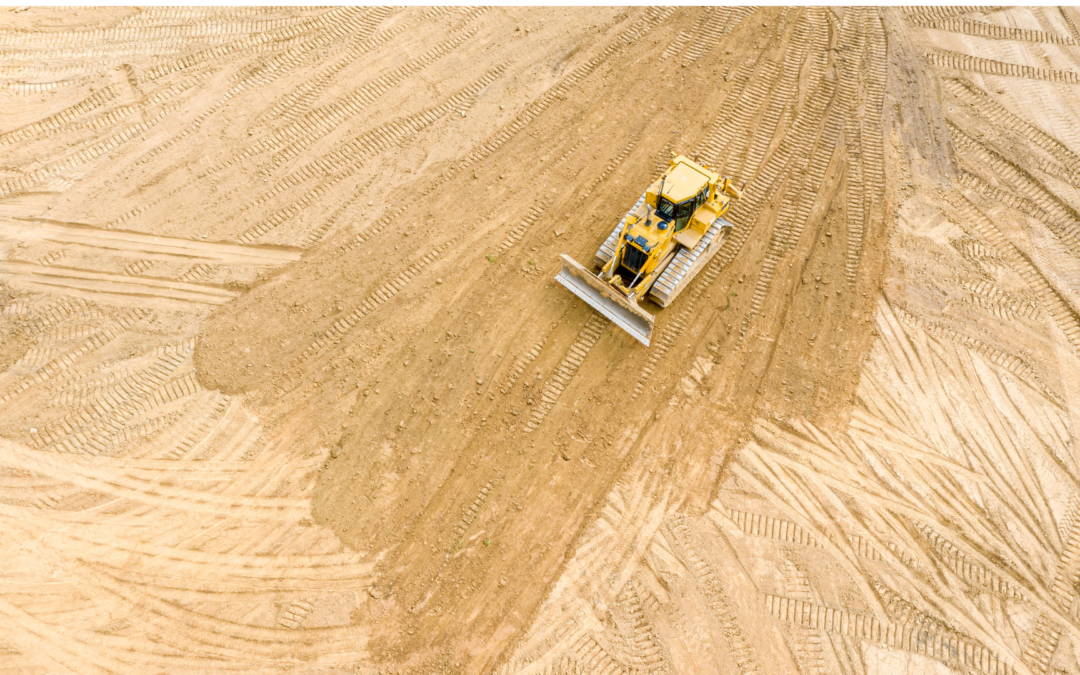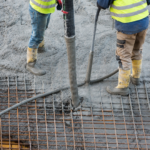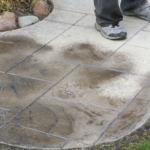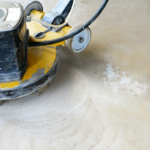Concrete grading might not be the first thing on homeowners’ minds, but it’s an essential aspect of maintaining a safe and durable property. Whether you’re planning a new driveway, patio, or foundation, understanding concrete grading is crucial.
Here we will discuss the essentials of concrete grading in High Point, guiding homeowners through the process and benefits. You’ll learn practical tips, expert insights, and everything you need to ensure your concrete projects stand the test of time.
What is Concrete Grading?
Understanding the Basics
Concrete grading refers to the preparation and leveling of the ground before pouring concrete. The process ensures that the surface is even, stable, and capable of supporting the concrete structure. Proper grading prevents issues like water pooling and uneven settling, which can compromise the integrity of the concrete.
Why It’s Essential
Grading affects the longevity and durability of your concrete projects. Without proper grading, you risk cracks, erosion, and other forms of damage. This step is particularly important in High Point, where weather conditions can vary significantly, putting additional stress on concrete structures.
Tools and Techniques
Grading typically involves heavy machinery like excavators and graders. However, for smaller projects, manual tools such as shovels and rakes may suffice. The key is to ensure the soil is compacted and slopes away from structures to facilitate proper drainage.
The Importance of Proper Drainage
Preventing Water Damage
One of the main reasons for concrete grading is to ensure water drains away from your home’s foundation. Poor drainage can lead to water pooling, which weakens the concrete over time and leads to cracks and other structural issues.
Enhancing Longevity
Proper drainage extends the life of your concrete structures. By directing water away from your property, you reduce the risk of erosion and water damage, ensuring your concrete remains strong and stable for years to come.
Health and Safety Benefits
Standing water can also become a breeding ground for mosquitoes and other pests. Good drainage helps maintain a healthier environment around your home, reducing the risk of pest infestations and related health issues.
Common Grading Issues and Solutions
Identifying Problem Areas
Common grading issues include uneven surfaces, improper slopes, and inadequate drainage. These problems can be identified through a visual inspection or with the help of a professional.
DIY Fixes
For minor grading issues, homeowners can use soil and gravel to fill in low spots and create a more even surface. However, it’s crucial to compact the soil properly to prevent future settling.
Professional Help
For more significant problems, it’s best to consult with a grading contractor. Professionals have the expertise and equipment to address complex grading issues, ensuring your project is completed to the highest standards.
The Role of Soil Type in Grading
Assessing Soil Conditions
Different soil types behave differently under pressure. Sandy soil, for example, drains well but may not provide sufficient support for heavy structures. Clay soil, on the other hand, offers excellent support but poor drainage.
Choosing the Right Soil
Understanding your soil type helps in selecting the right materials for grading. In some cases, you may need to bring in additional soil or other materials to achieve the desired stability and drainage properties.
Soil Testing
Before starting any grading project, it’s advisable to conduct a soil test. This test will reveal important information about the soil’s composition and suitability for your planned concrete structures.
Steps to Proper Concrete Grading
Planning and Preparation
Start by planning your project and marking the areas that need grading. Gather all necessary tools and materials, and ensure you have a clear understanding of the slope and drainage requirements.
Excavation and Leveling
Remove any existing vegetation, debris, and topsoil. Use your tools to level the ground, creating a smooth surface. For larger projects, consider renting heavy machinery to speed up the process.
Compacting the Soil
Compacting the soil is a crucial step in grading. Use a tamper or a mechanical compactor to ensure the soil is firm and stable. This prevents future settling and provides a solid base for your concrete.
Benefits of Hiring a Professional
Expertise and Experience
Professional graders have the knowledge and experience to handle complex projects. They understand local regulations and best practices, ensuring your project is completed efficiently and to the highest standards.
Access to Equipment
Hiring a professional means you won’t need to rent or purchase expensive grading equipment. Professionals come equipped with the tools needed to complete the job quickly and effectively.
Peace of Mind
Knowing that your grading is done correctly provides peace of mind. You’ll avoid potential issues down the line, saving time and money on future repairs and maintenance.
Cost Considerations
Budgeting for Grading
Grading costs can vary depending on the size and complexity of your project. It’s important to budget for grading as part of your overall concrete project expenses.
Getting Quotes
Obtain quotes from multiple contractors to ensure you’re getting a fair price. Make sure to ask about any additional costs that may arise during the project.
Long-Term Savings
While professional grading may seem expensive upfront, it can save you money in the long run by preventing costly repairs and extending the life of your concrete structures.
Environmental Impact of Grading
Erosion Control
Proper grading helps prevent soil erosion, protecting your property and the surrounding environment. By managing water flow, you reduce the risk of soil displacement and related damage.
Sustainable Practices
Many grading contractors use sustainable practices, such as recycling materials and minimizing waste. Ask your contractor about their environmental policies and choose one that aligns with your values.
Permits and Regulations
Ensure your grading project complies with local regulations and permits. Failing to do so can result in fines and project delays. Your contractor should be familiar with these requirements and handle the necessary paperwork.
DIY vs. Professional Grading
Pros and Cons of DIY
DIY grading can save money but requires significant effort and expertise. It’s suitable for small projects but may not be feasible for larger, more complex tasks.
When to Hire a Pro
For large or complicated projects, hiring a professional is the best option. They have the skills and equipment to ensure your grading is done correctly and efficiently.
Combining Efforts
In some cases, you can handle the initial grading work yourself and hire a professional for the final touches. This approach can save money while ensuring a high-quality result.
Maintenance Tips for Graded Areas
Regular Inspections
Inspect your graded areas regularly for signs of erosion, settling, or drainage issues. Early detection allows for prompt repairs, preventing more significant problems down the line.
Seasonal Adjustments
Seasonal changes can affect your grading. Adjust your drainage systems and address any issues that arise due to weather conditions, such as heavy rain or snowfall.
Professional Maintenance
Consider periodic professional inspections and maintenance to keep your graded areas in top condition. Professionals can identify and address issues you might miss, ensuring long-term stability and performance.
Contact Greensboro Concrete Services Today
Concrete grading is an essential step in any construction project, and it’s crucial to get it right for the longevity and durability of your structures. Whether you choose to tackle grading as a DIY project or hire a professional, understanding the process and its benefits will help you make informed decisions and achieve the best results.
At Greensboro Concrete Services, our team of experts can provide personalized advice, professional grading services, and more. We are committed to transforming your property into a safe, beautiful, and durable space. Contact us today to discuss your grading and concrete needs.






